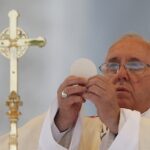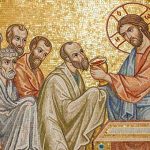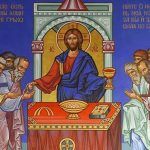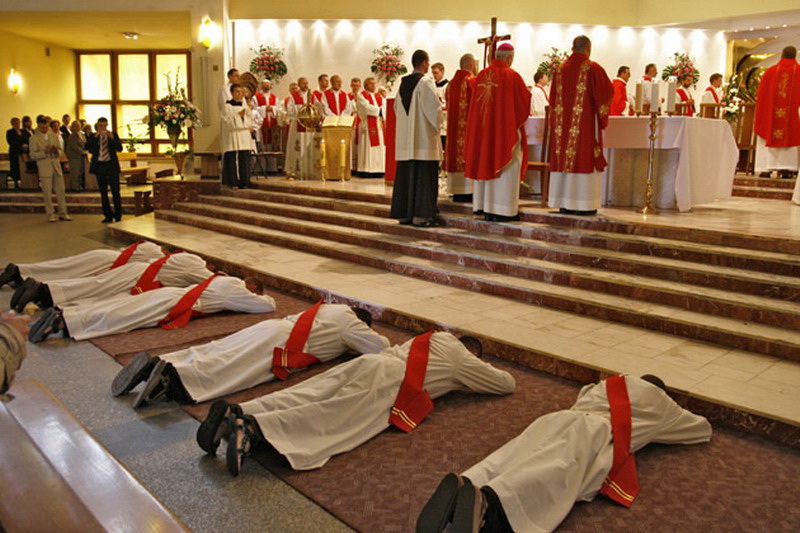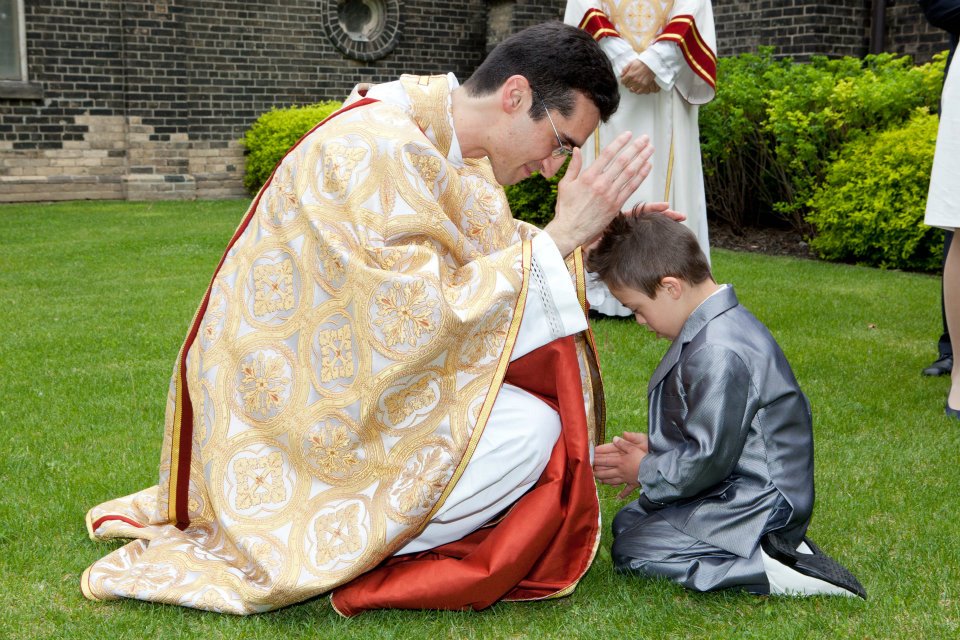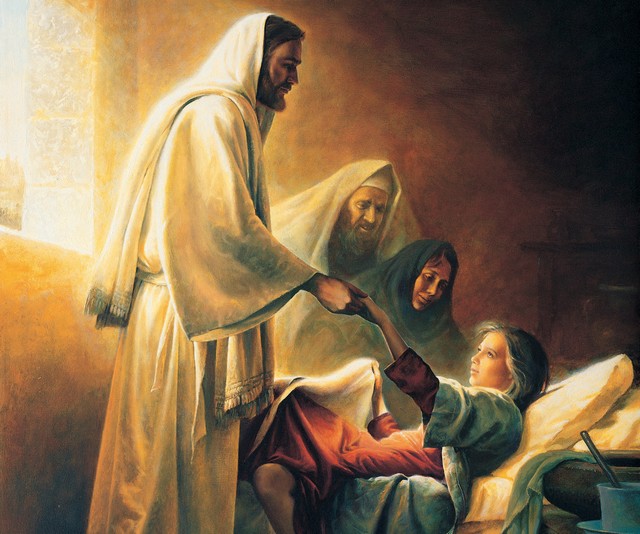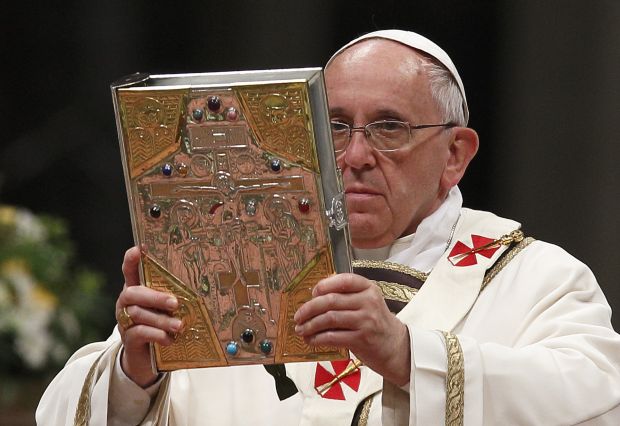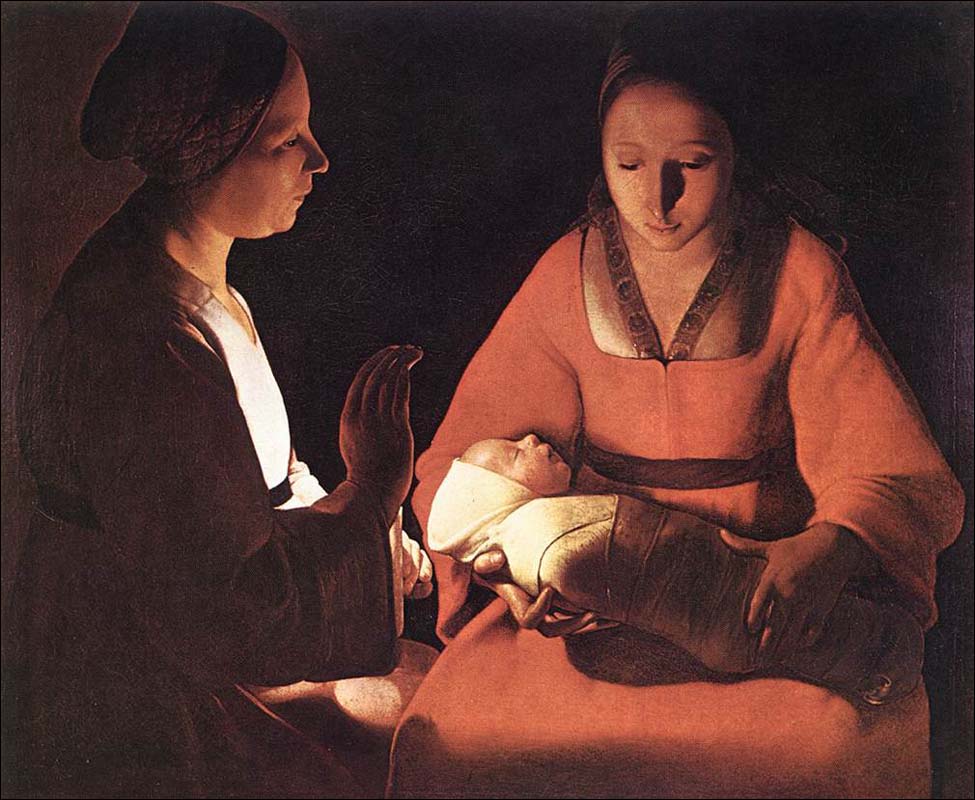.jpg) God's people actively participate in the Holy Mass.
God's people actively participate in the Holy Mass.
There are various gatherings of people. At a sports stadium, In the theatre, in the cinema. People are just spectators, though they are often emotionally involved. There are other gatherings too, in which each participant takes an active part, e.g.. interest clubs, discussion clubs, scientific meetings, as well as school lessons.
Holy Mass. it is also a congregation. Is it enough to be just a passive listener and viewer? ?
Active participation in prayer
The Eucharistic assembly is first and foremost an assembly of people, who pray with Christ and through Christ. A priest presides over this assembly, who received in the sacrament of the priesthood a special mission and participation in the priestly dignity of Jesus Christ, the only Mediator between God and men. In his name, he performs his functions in the Eucharistic assembly.
Holy Mass. it is the gathering of the prayers of the whole Church. Therefore, Christians cannot attend Mass. only passive observers and listeners, but they should actively participate in common prayer and do it all, what belongs to them. Some prayers, like for example. "Glory in the Highest", "Confession of faith", joyful singing after the preface "Święty, holy, holy "and" Our Father ", all those present say or sing along with the priest. This common prayer expresses the deepest union of all participants with God and with each other. All believers are, as it were, one heart and one soul, when they unanimously say the words of the prayer of praise, thanksgiving, atonement and petition. There are also many prayers, which the priest says on behalf of all. He invites those present to a short personal prayer. So when a Christian hears the call "Let us pray", he should not wait idly for a priest to pray, but in your own words to pray in silence. Only a moment later the priest finishes all prayers personally and through Christ, present in every Eucharistic Assembly, he presents them to God the Father. As a sign of our communication with the priest's prayer, we answer "Amen", i.e.. "Let it be so".
Especially, however, all participants in the sacrifice of the New Covenant should unite with the celebrant during the great Eucharistic Prayer., in which the risen Jesus transforms bread and wine into his glorified Body and Blood and offers them for us in an offering to God the Father. It is not enough just to answer the priest with words, "Let us give thanks to the Lord our God", but with thoughts and hearts one must connect with the content of the prayer. The most important thing in this prayer is the co-offering of all participants to God the Father together with the glorified Christ, through him and with him. An expression of this co-offering is the loud answer "Amen" at the end of the great Eucharistic Prayer.
A Christian in the Eucharistic Assembly also takes an active part in common singing. St.. Paul encourages : “Let the word of Christ dwell in you with (with all his) wealth : Teach with all wisdom and admonish yourselves through the psalms, hymns, songs full of spirit, under the influence of grace singing to God in your hearts " (Col. 3, 16).
During the Holy Mass. Psalms are also sung, which were the prayer of Christ, Apostles and early Christians. Psalmy, the songs and some prayers change every Sunday and every feast, depending on the content and mood of the Scripture readings. (joy, fine, gratitude).
Participation in liturgical activities
Apart from prayers, there are also. also activities, that lay Christians do. And they too share in the priestly dignity of Jesus Christ. The altar server helps the celebrant in performing the liturgical functions ; the teacher reads the word of God ; and the commentator explains to the present the meaning of the various rites of the Eucharistic mystery. The psalmist sings between lessons, the collective singing is directed by an organist.
For the most important liturgical activities, that every believer can fulfill, belongs : bringing the offerings to the altar and presenting them to the celebrant. By bearing the fruits of their daily work, the faithful integrate their whole lives into the glorification of God. The faithful also participate in the Eucharistic assembly through certain attitudes and gestures, determined by liturgical regulations. Through these attitudes and gestures, the faithful express their inner spiritual state, prayerful. The basic attitude of the participants in the common prayer of the Church is standing. It is a paschal attitude, expressing the joy of resurrection and an attitude full of reverence and readiness to fulfill God's will in life.
The kneeling posture at the time of transubstantiation means adoration, that is, the highest worship of Christ as the Son of God. Christians get down on one knee, when they pass before the Blessed Sacrament, as a sign of faith in the presence of Christ. Slap in the chest, during the act of penance at the beginning of Holy Mass., it is a sign of regret and admission of guilt.
How will I answer God ?
You see now, how a Christian should participate in the Eucharistic Assembly. What is your participation ? You feel responsible for the preparation and conduct of each Eucharistic Assembly ? When the celebrant asks you to accept an activity in the Eucharistic Assembly, how do you accept this invitation ? Will you pronounce yourself, even though you have the appropriate preparation for it ?
■ Think:
1. Które modlitwy Mszy św. all the faithful should say ?
2. Jaki sens ma wezwanie : "Let's pray", followed by a moment of silence ?
3. Jak włączamy się w wielką Modlitwę eucharystyczną ?
4. Jakie znaczenie mają wspólne śpiewy w Zgromadzeniu eucharystycznym ?
5. Jakie czynności we Mszy św. are performed by the faithful ?
6. Co wyrażają postawy i gesty liturgiczne ?
■ Remember:
81. The Church cares about this very much, that Christians during the Eucharist would not be present as strangers and silent spectators, but that they participate consciously, devoutly and actively (By. KL 48).
■ Task:
Write, why every Christian should feel responsible for the preparation and conduct of the Eucharistic Assembly ?
